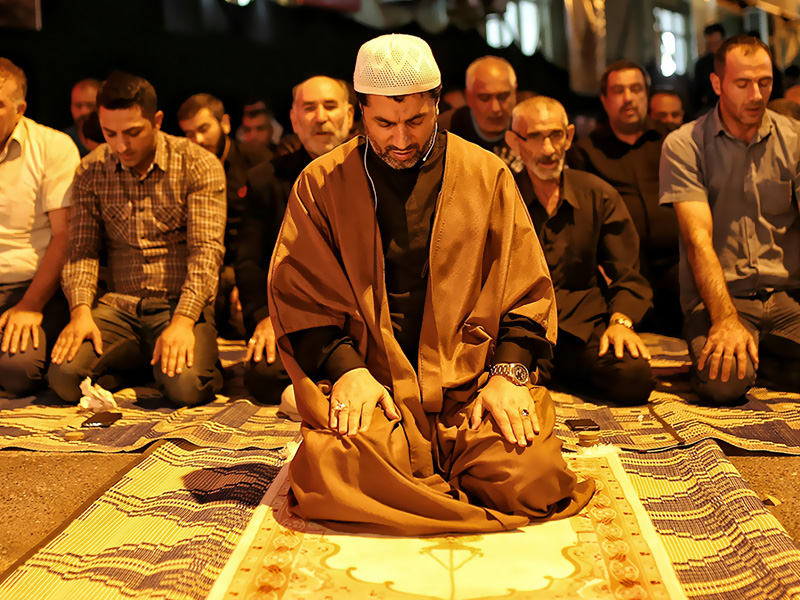Ibn Rushd was a Muslim genius and polymath who mastered in a number of different fields. He wrote over a hundred books on such varied topics as theology, physics, meta-physics, linguistics, medicine, astronomy and law, just to mention a few. He was born in Cordoba in Andalusia (modern Spain), in the year 1126 (520 AH) and died in the year 1198 (595AH), which is about eight centuries ago. He came from a family of renowned scholars and jurists of the Maliki School of thought, which was the predominant madh-hab in that region at that time. His grandfather, after whom Averroes was named, was a leading qadhi (judge) in Cordoba. He was prominent in Islamic law and rose to become a qadhi himself and was appointed the chief judge in Cordoba. In fact, he was the highest judge in Andalusia, and what is known as Morocco today in the North-West Africa.

His full name was Abu’l Walid Muhammad ibn Ahmad ibn Rushd (Al-Haafidh) or Averroes as he was known in Latin Europe.
The Ummah of Muhammad (SAW) is defined by adherence to the shar’iah (Islamic law). Therefore, the shari’ah is at the core of the identity of the Muslim community. Scholars of the shari’ah are of different kinds. Some of them teach the shariah and take it as a profession, and others go beyond that by protecting the shari’ah from corruption and destruction. They are known in fiqh as the Guards of the Shari’ah. They understand the shariah very well, internalise it, and guard it from being compromised or destroyed in any of its aspects in the people’s lives. One of such scholars is ibn Rushd. He was one of the protectors of the shari’ah and, to him, the truth was much more important than anything else.
Ibn Rushd was one of the most famous philosophers in the Middle Ages. But his fame in philosophy was more in Latin translation than in Arabic. He is known in the philosophy world as the Second Teacher, i.e. after the renowned philosopher, Aristotle. He was a radical rationalist, a great thinker, and a Muslim scholar that was highly regarded in the West, especially because of his philosophy. He did a commentary (a synopsis) on the works of Aristotle, which earned him the title “The Commentator”. In the Muslim world, Aristotle is referred to as “The Philosopher”, while Ibn Rushd is referred to as “The Commentator”. That was how highly renowned he was.
Many of his books were burnt, including his synopsis of Aristotle, except for one copy that was left with one of his students at the time who was ibn Maymun (Maimunadis), a Jewish student of his. It remained the copy through which Europe knew Aristotle, and without that knowledge that was transported from Iraq all the way to Andalusia, and eventually through Maimunadis to Europe, Europe would not have known Aristotle, as the originals of Aristotle had disappeared.
Ibn Rushd was not only a philosopher, but he was also a doctor (a physician), and he wrote a textbook on medicine that was used for centuries not only in North Africa but also in Europe. The textbook, which survived a long span of years, was also a proof of how excellent he was as a physician and as a scholar of medical sciences.
He was highly respected by the leaders of the time, but he never agreed to work for them, which is another attribute of the guards of the shari’ah – they do not work for the government, not because it is prohibited, but because their job is to be ethical standards and to be the advisers of the government. It is said in history that he was so popular among the umara (plural for amir – leader) that each one of them offered him to be a wazir (Prime Minister) to help them and to be part of their palaces. But he never wanted the money nor the status, and therefore he lived and died as a very respected judge.
Despite leaving this world as one of those scholars of the shari’ah whose works exist in anonymity, Averroes left a few books of great importance, one of them being Bidayatul-Mujtahid Wa Nihatul-Muqtasid (The Beginning of Scholarship and the End of Mediocrity). The English translation of the book is titled: “The Distinguished Jurists Primer”. Another of his very iconic books, other than his synopsis on the works of Aristotle, is titled: “Fasl Al-Maqaal Fi Maa Bayna Shari’ati Wal-Hikmati Min Intisad” (The Decisive Treaties Determining the Connection between the Law and Wisdom). That book was very important because at that time, Al-Imam Al-Ghazali, another shining star and erudite scholar from the other side of the Islamic world in Damascus where he was the Qadhi, had declared philosophy and everything that had to do with its study prohibited. But ibn Rush profoundly defended philosophy based on the Qur’an and hadith and declared that not everything in philosophy is prohibited – if it goes against the shari’ah then it is prohibited, but if it goes in tandem with the shari’ah then it is permissible. That informed the title of the book: “Fasl Al-Maqaal (Decisive Treatise). In that
book, he redefined philosophy and related it to the Qur’an in a very profound and fundamental way. The book was translated into many different languages.
The bulk of Al-Ghazali’s criticism of Philosophy was based on the views of ibn Sina which he strongly objected to. Ibn Rushd was also critical of ibn Sina, but he argued that the entire field of study (philosophy) cannot be rubbished because of one person’s wrong ideas, just like the whole of fiqh (jurisprudence), for example, cannot be written-off as misguided knowledge just because of the weird opinions of one faqih (jurist).
Ibn Rushd also wrote another book in response to Al-Ghazali’s Tahafut Al-Falasifa (The Incoherence of the Philosophers), which he titled Tahaafut at-Tahaafut (Incoherence of the Incoherence), and Kashf ‘an al-Manahij al-adilla fiaqa’id al-milla (Explanation of the sorts of proofs in the doctrines of religion). He wrote several other books covering fiqh, tafseer, hadith, usool, maqasidu-shariah, etc.
May Allah have mercy on him and admit him into Paradise in the company of the righteous.




Leave a Reply